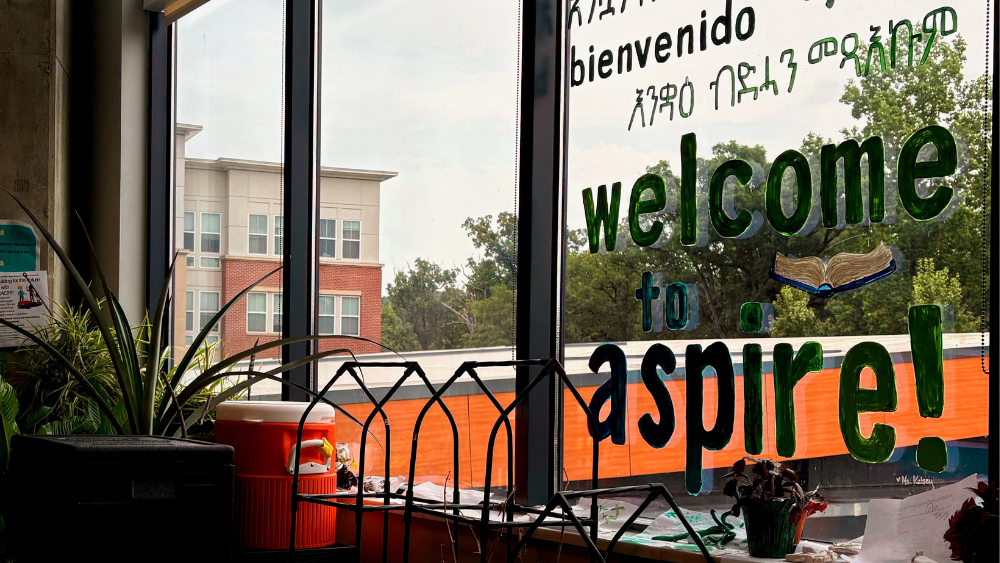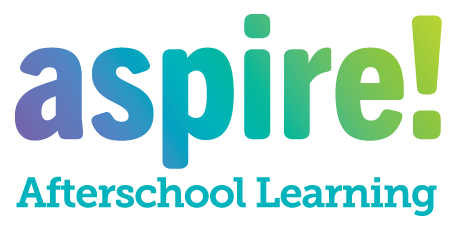25 Historically Underserved Children Lost Their Afterschool Program Because of Federal Funding Cuts

Author: Sophie Nunziati
The end-of-summer celebration at Aspire Afterschool Learning was supposed to be a joyful occasion. Instead, it ended in tears.
After a day of writing goodbye cards, playing games and watching their classmates perform improv skits, all 140 campers gathered for an assembly. Tearfully, program director Anna Faulkner announced that 25 students would be unable to return to Aspire’s no-cost afterschool programs in the upcoming year due to federal funding cuts initiated by the Trump administration.
Aspire Afterschool Learning is a nonprofit just outside Washington D.C. that offers an afterschool program for kids in third through eighth grade. The students that the program serves are majority children of color (99 percent) and most come from low income households (98 percent). Prior to the cuts, Aspire served 155 students after school during the 2024-2025 school year.
Due to federal funding cuts, the organization lost 30 percent of their budget for the 2025-26 school year. Despite their extensive fundraising efforts, Aspire must close a classroom. They now have a record 73 students on their waitlist, including the 25 current students who will not be able to return to Aspire in the fall.
Aspire is not alone in facing funding cuts and having to scale back programs. The nonprofit is one of 1,000 direct-service organizations impacted by AmeriCorps funding cuts, totaling 400 million dollars in lost grant funding. AmeriCorps funding supports organizations doing critical work to uplift communities nationwide, which have faced devastating impacts since the cuts were announced in late April.
The loss of programs like Aspire are especially detrimental to the livelihoods of mothers, who often must pause or alter career goals to care for their children. According to Claudia Ramirez Cuéllar, parent and community engagement coordinator, Aspire mothers also tend to have more responsibility over decisions surrounding their child’s education. Therefore, mothers will be disproportionately left to pick up the pieces as children lose access to Aspire’s afterschool programs.
Empowering students
Aspire hosts students at the Arlington Mill Community Center and at two Title 1 schools. They run a year-long afterschool program and a six-week summer learning camp, where the team facilitates 30 minute lessons on literacy and STEM. Additionally, students participate in social-emotional learning and receive daily homework help, a meal and time to interact with other kids.
Dr. Tracy Gaither serves as principal at one of Aspire’s school sites, Dr. Charles R. Drew Elementary. Drew Elementary “[does] not have volunteers coming in during the school day” as a result of Aspire funding cuts. This “impact[s] the work that happens directly with students and teachers,” Gaither says.
Paula Fynboh, the CEO of Aspire, shared that “Having one empty classroom and 25 kids who aren’t in our program, that’s not just a year where they don’t have a safe place. That’s a year of learning at this really crucial elementary age … in terms of our community and our society, that’s 25 young people whose talents aren’t going to help us in the future if we don’t invest in them.”
“We know that some of our families are not going to be okay,” she added.
One student said that “Aspire is like a second home.” Yet another shared that “the teachers feel like family.” For her, the program is a “safe place to go after school.”
Erica Andrade, a member of the program team, shared that “[one of my students] saw firefighters outside, and the first thing she saw was a female firefighter, and she looks at me and she goes, ‘Women can be firefighters too?’… I realized that her family comes from a different country where this is not common. So seeing that kids realize, girls specifically, that there are so many other jobs that you can take… is just beautiful.”
When Andrade was informed about the cuts to programming, her first thought was “these kids aren’t going to have a safe space anymore,” she says.
Andrade knows that students who are unable to partake in the program are “still going to need help on certain things and then they won’t have this space to return to where personal and academic support had been accessible to students lacking resources.
Impact on parents
Claudia Ramirez Cuéllar, Aspire’s parent and community engagement coordinator, said, “This is a domino effect, because the parents have to work less hours. That means that now they have to ask for food stamps, before they didn’t have to. Maybe now they have to ask for help to pay the rent. That’s something that they didn’t have to [do] before.”
Parents are already having to think about what they would do if their kids do not get an invite back to Aspire’s programs. Cuéllar says that “With the parents I’ve been talking [to] … they are looking for someone that they have to pay … The other option that they have is to leave the kids alone … they are worried that someone will go [to] the police and say this child is alone, [and] they can get in trouble.”
One parent with a child enrolled at Aspire, Juan, said, “both Mom and I have full time jobs during the week. [With the] work economy, our [schedules], it’s really hard to find child care. It would be really hard for us because it’s not just [our daughter]. We have another kid that could be a candidate for Aspire this coming year.”
While cuts to Aspire’s no-cost afterschool program will impact all parents, research suggests that the loss of a childcare provider will have an outsized effect on mothers. According to a 2019 report from the Center for American Progress (CAP), 71 percent of Black mothers and 41 percent of Latina mothers were the main source of income for their families.
This means that mothers of Aspire’s children, as Cuéllar mentioned above, have a tough decision to make this school year. They must choose between taking a pay cut to care for their children themselves, or work even more hours to support their families and ensure that their kids have access to care.
Cuts to AmeriCorps programs increase barriers to accessing childcare, decrease growth
In the US, there are 24.7 million children who are not in an afterschool program, but would be enrolled if a program were available, according to a 2022 survey commissioned by the Afterschool Alliance.
57% of participants reported that the cost of afterschool programs was a crucial aspect of their decision not to enroll their child. Black and Latino parents reported even higher barriers to accessing afterschool programs. This means that cuts to AmeriCorps funding that support programs like Aspire exacerbate the lack of afterschool programs available for low income families of color.
Programs like Aspire support parents by enriching their children while they work to support their families. According to program coordinator Tsion Mamo, “it takes a village to raise a child … parents put their kids in our program and know that they’re not just coming home watched, they’re coming home having learned something new.”
Aspire uniquely supports student success. This past year, Aspire doubled the number of students reading on or above grade level. Outside of academics, over 90% of elementary school students felt more comfortable raising their hands in class and getting their homework done on time as a result of Aspire’s programs.
Cuts to AmeriCorps funding decimate underserved students’ access to the academic and social emotional programs that support their growth.
When speaking to what the community and the public can do to help, Fynboh said “I think there’s a role for all of us …. this is a time to show up [with] whatever’s in your toolbox and however you can contribute.”
Though funding cuts leave uncertainty going into the 2025-26 school year, Fynboh continues to lead with hope. “I think of everything that’s going on in this world, but if we go back to the 155 kiddos we have here, if they love learning and they know the power of their voice and they’re so compassionate, and care so much about their community and family, then somehow we’re going to be okay.”
Author Bio: Sophie Nunziati is a junior at Smith College. She is majoring in Government and concentrating in Community Engagement and Social Change. As a student who aspires to help create a socially just world, she is focusing her studies and practical experience on the policy formulation and implementation process. This past summer, she served as the Development and Communications intern at Aspire Afterschool Learning, where she helped draft grants and newsletters, and observed how the organization adapted to federal funding cuts in real time.
